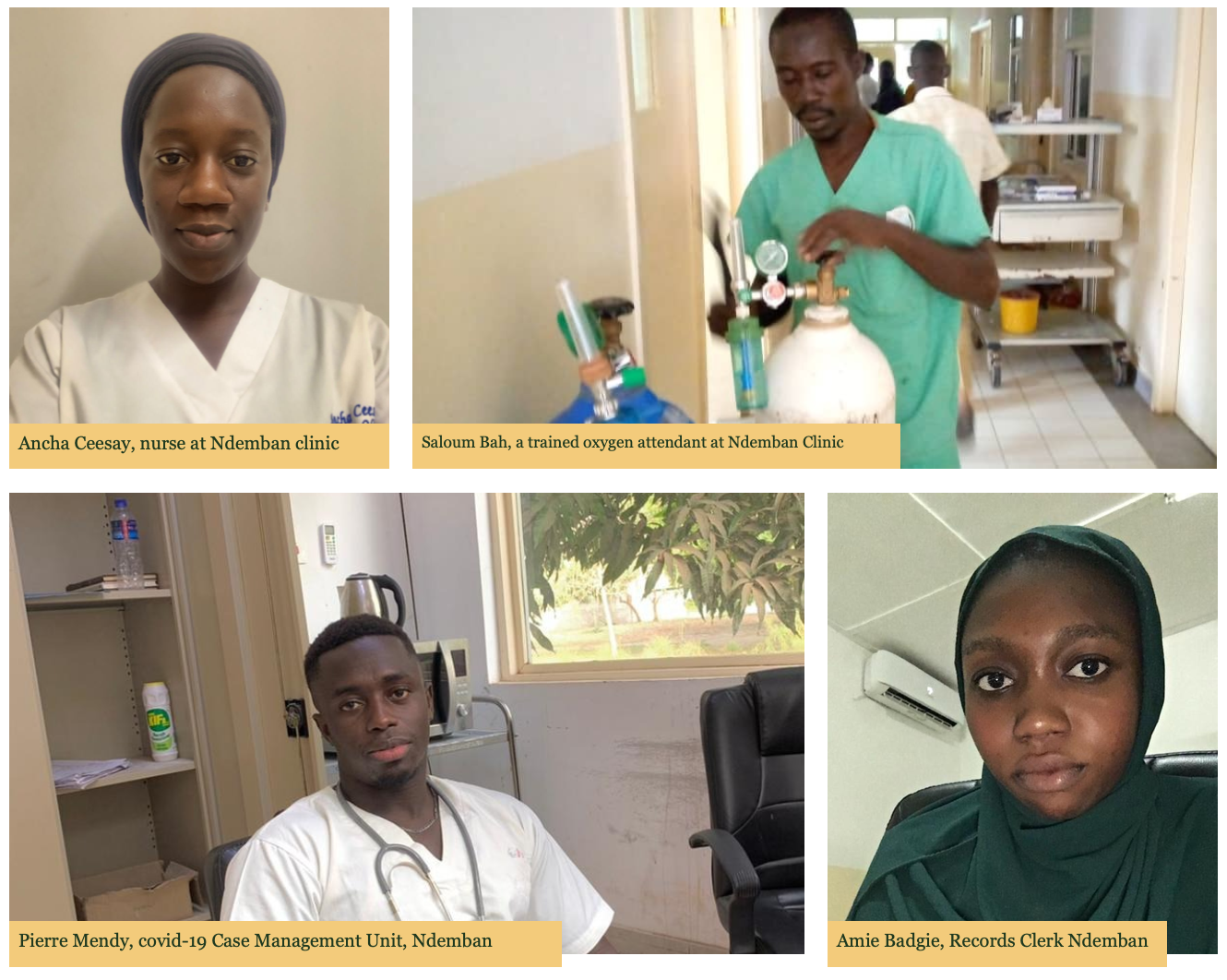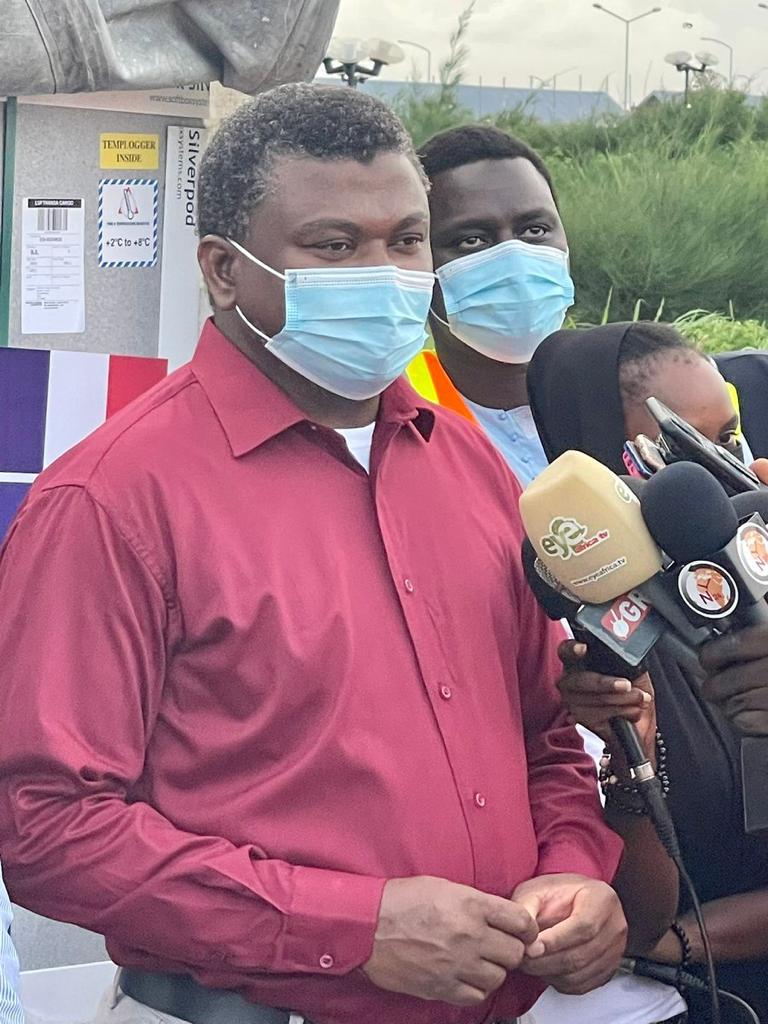EFSTH Bakau Centre (Ndemban clinic) set to install The Gambia's first ever Oxygen Plant
Solving the problem of Oxygen Access In The Gambia
August 1, 2022

Despite being one of the most abundant substances on the earth, patients are dying from a lack of oxygen all over the world
When her almost two-year-old daughter was diagnosed a few years ago with severe pneumonia and admitted to the Edward Francis Teaching Hospital (EFSTH) in Serrekunda, Salimatou learned firsthand how helpful oxygen is in the management of the infection and averting deaths. In fact, the leading cause of death in children under five years of age is pneumonia, which can be managed with oxygen treatment. Many illnesses, which can result in the level of oxygen in the blood to dip, i.e. hypoxemia, including malaria, meningitis, sepsis, etc. could be averted by administering oxygen treatment.

Producing, storing, and delivering oxygen is an astonishingly complex process. In The Gambia, oxygen is commonly produced at Banjul Oxygen for commercial purposes. It is sold as gas, and transported in heavy metal cylinders, to hospitals and healthcare facilities. The cylinders usually hold a limited amount of oxygen that can be exhausted by a patient suffering from hypoxemia within a short time.
Recognizing the critical role of oxygen in the treatment of numerous illnesses, the World Health Organization (WHO) has added oxygen to its List of Essential Medicines. This list outlines the “minimum medicine needs for a basic healthcare system” to which a healthcare facility should have reliable and sufficient access.
But just being part of a list doesn’t fix the problem or guarantee widespread availability as we learned too well at the advent of the Covid-19 pandemic.
With one-in-five Covid-19 patients requiring hospitalization and treatment with oxygen, the Covid-19 pandemic exposed the gaping disparities in healthcare systems between the developed and developing countries propelling the disease trajectory in sub-Saharan Africa to some uncertain fate, exacerbated by the lack of available oxygen equipment.
At the onset of the COVID-19 pandemic in The Gambia in March 2020, none of the public hospitals had medical oxygen available and a majority of the health workforce were not trained on its use. The Gambia, therefore, relied exclusively on imports from Senegal and Banjul Oxygen to plug the oxygen system deficit during the pandemic.
At the EFSTH Bakau, commonly called Ndemban clinic, an admissions hospital with high oxygen demand, which was refurbished with UNDP support through the facilitation of public-private partnerships as part of its ongoing support for the emergency response to COVID-19 in the country, the story was no different.
According to Dr. Jagne, a kidney specialist and general medical practitioner at Ndemban clinic,
“At the height of the pandemic we practically hijacked the oxygen supply of the Banjul Oxygen facility as an immediate emergency response. This was because we had big deficits in oxygen supply. Patients needing oxygen shot the supplies well beyond our limits.”
Even when the hospital stretched to capacity, more patients requiring oxygen support were admitted.
“We could not allow patients to go home and suffocate. Some patients were placed on oxygen support for three months at the expense of the hospital. It placed a huge loan burden that the hospital has since paid off. Because as the law of economics dictates, when the demand rose, the supply became short and the price of oxygen hiked substantially,” he added.

Indispensable in the administration of oxygen to Covid-19 patients during the pandemic were the core team of doctors, critical care nurses, and other support staff of the Ndemban clinic. Indeed nobody can manufacture care capacity. Overnight, a dream team was formed, which was dedicated to assisting hypoxemic patients 24/7, in their times of distress. Saloum Bah, a trained oxygen attendant, and Ancha Ceesay, a nurse at the Case Management Unit, were among several others recognized with Outstanding Awards by Ndemban clinic for their infinite capacity to provide critical care in the heat of the pandemic.
According to hospital records, Saloum Bah ensured there was an adequate supply of oxygen regularly. This is particularly important as patients in intensive care, unable to move or do anything for themselves, need to be connected to a machine that cannot stop working even for a minute. Taking that the demand for oxygen skyrocketed at the height of the pandemic and required due diligence when oxygen supply at the clinic reached a critical low, attentive monitoring was the difference between life and death for most patients.
On receiving his award, Saloum had this to say,
“I’m honoured to be part of the selected ones and I am so grateful the effort I put into the job has not been a waste. Thank you so much.”
Other awardees included Pierre Mendy, a member of the Covid-19 Case Management Unit who was recognized for observing perfect IPC and safety measures and for communicating well with patients on oxygen support. Amie Badgie was also singled out by the management of Ndemban clinic for her tireless work and due diligence as the clinic continued to be under pressure. These hospital staff, among many others, sprung into right action when duty called, and have been duly lauded and appreciated by Ndemban clinic’s top leaders.

Hon. Minister, Dr. Ahmadou Lamin Samateh
As part of long-term relief efforts, The Government of The Gambia in partnership with UNDP, WHO, and the World Bank has stepped forward and worked together to procure and deliver The Gambia's first ever oxygen plant to be installed at the Ndemban clinic capable of producing medical-grade oxygen.
The procured oxygen plant is a Pressure Swing Adsorption (PSA) oxygen generating plant with a 50 cubic meter capacity per hour, which will make Ndemban hospital not only self-sufficient in their oxygen requirement but able to supply surrounding hospitals. Moreover, two more plants are expected by the end of August with a production capacity of 25 cubic meter capacity per hour, fully funded by the Global Fund with UNDP support limited to procurement services. These will be installed at EFSTH Banjul and EFSTH Bansang. According to the Hon. Minister of Health, Dr. Ahmadou Lamin Samateh,
"This is one of the milestone achievements of the health sector of The Gambia since independence. Having an oxygen plant in-country will contribute immensely in alleviating the suffering of the patients hence reducing morbidity and mortality as a result of one of the many useful and successful partnerships between the Government of The Gambia and responsive and supportive partners such as the World Bank, UNDP, WHO and Global Fund."
These unprecedented times have given birth to new opportunities and directed priorities to an equitable health system post-Covid. As for Salimatou, her child was one of the lucky ones to survive severe pneumonia after being admitted for several days at the EFSTH Serekunda on oxygen support. Not many mothers of children under five years old can share the same story. But with the new oxygen plants, it is expected that high-grade medical oxygen will be available at points of care for every patient struggling to breathe in The Gambia.

Oxygen plant being offloaded

 Locations
Locations


